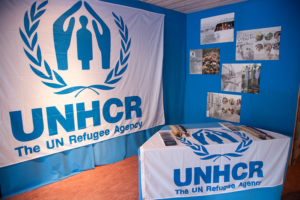Outreach Centers Provide Essential Services to Malaysian Refugees
 Although the majority of Malaysian refugees reside in or near the country’s capital city, Kuala Lumpur, thousands live outside this area and struggle to access urban centers for crucial services. As a result, the United Nations refugee agency (UNHCR) has opened its first outreach and community center outside Kuala Lumpur.
Although the majority of Malaysian refugees reside in or near the country’s capital city, Kuala Lumpur, thousands live outside this area and struggle to access urban centers for crucial services. As a result, the United Nations refugee agency (UNHCR) has opened its first outreach and community center outside Kuala Lumpur.
Refugees In Malaysia
Nearly 180,000 refugees and asylum seekers are registered with the UNHCR across Malaysia. Currently, refugee community groups estimate that tens of thousands more reside in the country undocumented. Rohingya Muslims make up the majority of Malaysia’s refugee population. Malaysia currently hosts the largest number of Rohingya refugees in Southeast Asia. Other refugee populations originate from countries such as Yemen, Pakistan, Somalia, and Afghanistan.
Rising Hostility
Although initially supportive of refugees and asylum seekers, Malaysia has become increasingly hostile towards these vulnerable populations. For example, the country is not a signatory to the 1953 UN Refugee Convention. This means it does not recognize the legal status of refugees and asylum seekers. Classified as illegal immigrants, refugees in Malaysia risk arrest, detention, and deportation. Xenophobia towards foreigners has risen in recent years. Many now view Rohingya refugees as a threat to the nation’s social, economic, and security systems.
Malaysia’s refugee populations are especially vulnerable to aggressive crackdowns on immigration during the COVID-19 pandemic. Malaysian authorities have increased immigration arrests in refugee and migrant neighborhoods and turned away nearly 30 boats of displaced Rohingyas since the virus began. Human rights groups warn that the virus could spread through the country’s overloaded immigration detention centers, and reduce the likelihood of refugees seeking coronavirus treatment. The Malaysian government’s COVID-19 relief package excludes refugees despite their need for food and essential services.
The Johor Outreach and Community Centre
As there are no refugee camps in Malaysia, most settle into urban areas of the greater Klang Valley Region including Kuala Lumpur. However, thousands of refugees live outside this region and struggle to access urban UNHCR centers. These refugees have to travel long distances just to access crucial services. UNHCR is working to make essential services accessible to refugee communities living outside Kuala Lumpur through the establishment of outreach and community care centers. The refugee agency has recently opened a model outreach center in Johor, a southern state near Kuala Lumpur, and plans to develop more centers across Malaysia in the coming years.
The Johor Outreach and Community Centre (JOCC) will make essential services accessible to over 16,000 refugees in Southern Malaysia. This will save these vulnerable communities over three and a half hours of travel time and excessive bus fare costs. Moreover, the outreach center is life-changing during the COVID-19 pandemic, as it will bring vital services to Johor’s refugee population while preventing the movement of people and gathering of crowds in urban areas.
The JOCC will be managed by Cahaya Surya Bakti (CSB), a partner of the UNHCR. Since 2013, the Malaysian-based NGO has provided community-based support to Johor’s refugee community. CSB works to ensure the education of refugee children in Johor and develop resilient communities through the establishment of schools, refugee empowerment programs, health services and outreach initiatives like food distributions. The JOCC will help CSB strengthen its existing community-led initiatives and provide a safe space for refugees throughout the state.
The Importance of UNHCR Documentation Services
Outreach and community centers provide critical UNHCR registration and renewal services to Malaysia’s refugee populations. Registering with the UNHCR provides refugees claims of asylum and identification as “Persons of Concern”. UNHCR cards demonstrate official identity and refugee status and are usually respected by Malaysian authorities, protecting refugees from illegal immigration arrests. In addition, UNHCR cards incentivize businesses to employ refugees in the informal economic sector and reduce the foreigner’s fare at public hospitals. Refugees are deemed illegal immigrants with no rights if their UNHCR card is not updated every five years. The JOCC will make UNHCR registration and renewal services more accessible and prevent card expirations from upheaving the lives of Johor’s refugee community. The center will also provide accurate, up to date information on refugee protection in Malaysia, as well as available services.
Looking Ahead
The JOCC is a symbol of hope for refugee populations outside Malaysia’s urban areas. Expanding UNHCR outreach and community centers across the country will give refugees greater access to documentation and essential services. Therefore, this is a vital step in enabling them to contribute to society and rebuild their lives.
– Claire Brenner
Photo: Flickr
